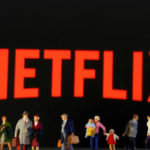In its recent report, the World Bank averred that the world faced a bleak future with the rising costs of food all over the world on the heels of the COVID-19 pandemic. Quite naturally, it observed that the impact of the pandemic was more severe in poor and middle-income countries. According to it, the poor countries of the world witnessed a sharp increase in food prices in September this year, the worst since the onset of the pandemic. Although it listed its contributions to ameliorating the situation in many countries, there are reasons to believe that the situation will persist for a longer time, especially in the poorest countries of the world, of which Nigeria is the capital. In the new report titled “COVID-19 in Nigeria: Frontline Data and Pathways for Policy”, the bank said: “Even though many Nigerians have returned to work, the jobs to which they have shifted — mainly in small-scale non-farm enterprises — may not offer income security, making it difficult for households to escape poverty. With the COVID-19 crisis ushering in associated shocks – especially to food prices – and social protection remaining rare, households’ food security and their welfare at large are under serious threat.” According to it, the rise in prices witnessed between June 2020 and June 2021 alone could have pushed another six million Nigerians into poverty, with urban areas being disproportionately affected. This, it said, underscored the need for short-term policies to support the people’s welfare.
It is distressing that vast populations of the Nigerian people remain destitute despite the country’s vast economic potential. The political leadership has continued to demonstrate acute ineptitude and lack of savvy in handling the challenge of food insecurity. If resources are being mismanaged, then the populace cannot but be poor. With the plethora of weak institutions, it is hardly surprising that Nigerians suffer from abject poverty. In accounting for the rising cost of food in the country, analysts have identified a range of factors, including the relatively low harvest volumes, chronic supply chain bottlenecks, limited access to forex through official channels, insecurity and flooding. As the World Bank acknowledged, poor households have been forced to reduce their consumption of food in quantity and quality despite the fact that food takes the lion share of the family budget. But the situation is much worse, as millions of households suffer acute hunger. Indeed, the situation in the country is dire.
Clearly, the government is not tackling poverty and its pervasive effects on the population. Even without the World Bank’s timely warning, the country’s leadership ought to have woken up from its slumber and addressed the privations to which the majority of Nigerians have been subjected for a long time. Failure to get the people out of the jaws of poverty certainly bodes ill for the country. As a Nigerian proverb says, where food concerns have been addressed, poverty has been dealt a huge blow. There must, therefore, be immediate measures by federal, state and local governments, where they exist at all, to cushion the effects of rising food costs. There is no democracy when the people cannot even feed.
On a policy level, the government is apparently confused. We recall, for instance, how the Ministry of Agriculture was in the month of May embroiled in controversy over the allocation of N30 million to the building of mosques, instead of addressing its core mandates on food security. Besides, time and again, we have urged the government to stem the tide of insecurity in the country and allow farmers to do their jobs. For a long time now, farming has become a risky undertaking as terrorists masquerading as herders kill, maim and rape farmers on their ancestral lands, crippling food production. In those places where farmers are able to till their land, the terrorists not only force them to pay levies before planting their crops, they also tax them before they can harvest those crops. But there are no guarantees because, depending on how their demons lead them, the terrorists could burn up the same farms at any time, or kill the farmers in a fit of bestial rage. Sadly, instead of going after these outlaws, the government has stuck to its pernicious practice of deploying the repressive apparatus of the state against critics and peaceful protesters.
The conclusion is inescapable: if Nigerians cannot feed, it is because the government wants it so.
WATCH TOP VIDEOS FROM NIGERIAN TRIBUNE TV
- Let’s Talk About SELF-AWARENESS
- Is Your Confidence Mistaken for Pride? Let’s talk about it
- Is Etiquette About Perfection…Or Just Not Being Rude?
- Top Psychologist Reveal 3 Signs You’re Struggling With Imposter Syndrome
- Do You Pick Up Work-Related Calls at Midnight or Never? Let’s Talk About Boundaries






